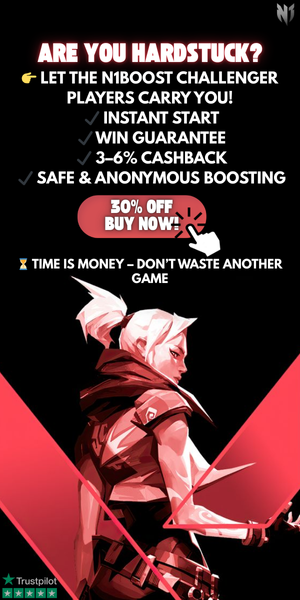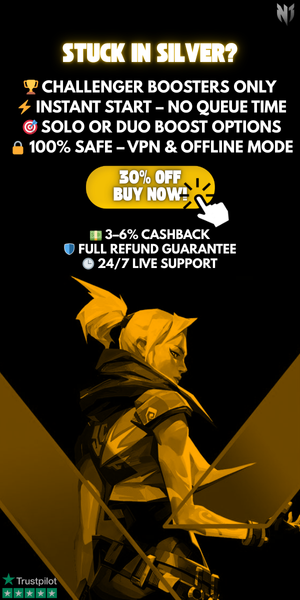The Psychology of MMR Anxiety in Valorant
Have you ever hovered over the “Play” button in Valorant and felt nervous about queuing for ranked? You’re not alone. Many players experience MMR anxiety—a fear of losing matches, dropping ranks, or underperforming in competitive games. This mental block can hold you back from improving and fully enjoying the game.
In this guide, we’ll break down what causes ranked anxiety, how it affects your MMR climb, and practical steps you can take to overcome fear and play confidently.
What Is MMR Anxiety in Valorant?
MMR anxiety happens when players become overly focused on their hidden MMR or visible rank. The fear of losing progress often leads to:
- Avoiding ranked matches altogether
- Playing too cautiously and performing poorly
- Stress and frustration that take the fun out of the game
Even high-elo players face this issue from time to time—it’s not exclusive to beginners.
How Ranked Fear Hurts Your Climb
🚫 Hesitation to Queue
Fewer ranked games mean fewer chances to improve and move up the ladder.
🚫 Performance Anxiety
Overthinking every play leads to mistakes and bad decision-making.
🚫 Tilt and Burnout
Tying your self-worth to your rank makes every loss feel devastating, which can result in tilt queues or giving up completely.
How to Overcome Ranked Anxiety in Valorant
✔️ Shift Your Focus to Growth, Not Rank
Treat every match as practice. Focus on small improvements like crosshair placement or utility usage instead of your RR gains.
✔️ Limit Ranked Sessions
Playing too many games in one sitting increases stress. Stick to 3–5 ranked matches per session for optimal focus.
✔️ Queue With Friends
Reliable teammates reduce the randomness of solo queue and give you more confidence.
✔️ Warm Up Before Ranked
Do aim training or play Unrated matches to prepare mentally and mechanically.
✔️ Accept Losses as Part of Progress
Even pro players lose games. What matters is learning from mistakes, not obsessing over MMR fluctuations.
Why Tracking Your Hidden MMR Helps Reduce Anxiety
Riot doesn’t show your hidden MMR, which makes ranked progression feel like a mystery. Using an MMR tracker gives you clarity about your performance trends and helps you approach ranked smarter—not scared.
Take Control of Your Ranked Journey With MMRValorant
Ready to overcome ranked anxiety and climb with confidence? Visit mmrvalorant.com to track your hidden rating, analyze your performance, and make smarter decisions about your climb. Stop hesitating and start improving today.
Tags

Author



